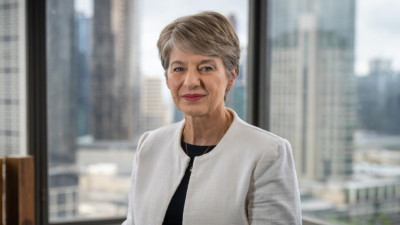Why slow and steady still wins the race
In a world of concept stocks and near-meaningless valuation metrics, the trick to beating the market might well be ignoring it.
“Hedge funds aren’t supposed to be a high-risk proposition,” says Omkar Joshi, principal and portfolio manager of Opal Capital Management. “They do get cast in a bad light, and that’s because there’s been lots of bad stories and that catches attention. The reality is that a hedge fund at its core is supposed to deliver a hedged profile of returns, and should actually be slow and steady and be well risk-managed.”
“That’s the most important job of a good portfolio manager… Boring is good – you don’t want all the other news flow.”
Joshi started his career at KPMG in tax and audit and has held portfolio management positions at Point72 and Regal. He launched Opal – which won the Australian Alternative Investment Awards best emerging manager award in 2021 on the strength of its returns – to fill what he saw as a gap in the Australian market for a true market-neutral fund.
“If you’re a long-only manager or a long-short manager with a net long skew, you can pick all the right stocks, but if the market drops 30 per cent you’re still going to lose money for your investors… You need to isolate what you’re good at and what you’re focusing on and give that to your investors, rather than mixing it in with something you’re not even taking a view on and don’t have any edge in terms of being able to work out what’s coming next.”
While they’re relatively popular abroad, market neutral funds are few and far between in Australia – and they don’t always stay true to label. It’s easy to be seduced by the returns offered by a particular sector or theme in what has been an explosive up-market, a story as old as active management itself: the decay of the investment process as bias creeps in.
“They’ll take a big swing on some particular sector or factor – it might be growth, tech, small-caps, resources – and they’ll have some good numbers out it and then push the boundaries a bit,” Joshi says. “And it works. And while it works, investors are happy. The problem is when it swings around the other way, that’s when you feel the pain.”
“For Opal it’s about staying disciplined and sticking to the stocks and hedging out your other sectors, factors and style biases. That means you’re never going to have a year where you’re making 80, 90, 100 per cent. But you’re not going to lose 30, 40, 50 per cent… We talk about (a return profile) of 10 to 15 per cent a year, one a month – slow and steady singles.”
It’s always a good time to be market neutral, but perhaps now more than ever. Joshi isn’t alone in thinking that the biggest risk to markets will come in the form of rising rates and quantitative tightening, and that there’s lots of “froth and hot air” around that will suffer as a result. Tech stocks particularly, which are judged on metrics that didn’t even exist ten years ago – total addressable market, sales multiples – “new concepts that have been created to make it make sense”. At least when a profitable business has problems, Joshi says, there’s some valuation support to fall back on, below which it might even become an acquisition target.
“There’s been so many buy now pay later names that have popped up. Most of them have never made money and most of them never will make money, but they trade on astronomical valuations because everybody’s just thinking about the blue-sky opportunity,” Joshi says. “They’re not all going to succeed – that’s a fact.”
And then there’s the question of what tech even is. Joshi’s gripe with the sector is that most of the Australian “tech” stocks are just existing industries that have been rebranded as tech “because they’ve got an app” – payday lenders that have discovered the awesome power of the internet.
“That’s something the market does seem to miss – especially when you compare the Australian market with the US market,” Joshi says. “The US tech names are Microsoft, Amazon, Facebook, Google… they have consistent revenue streams, they’re profitable, they’re generating capital, they’ve got good balance sheets, there’s no debt.”
“You look at (Australian) names – many of them don’t possess the same qualities in terms of cash flow generation, recurring revenues and balance sheet quality. They’re completely different businesses, but they’re all classed as tech anyway. It gets used pretty loosely.”
Of course, Joshi isn’t alone in that view either. But the price of many of those stocks has soared over the last several years (the last six months of volatility notwithstanding) and plenty of managers haven’t been able to resist the gains to be had, even if they doubt the story behind them. But in true market neutral fashion, Joshi doesn’t regret missing out on a short-term rally. Some stocks just don’t stack up – regardless of how precipitously their price has increased.
“There’s always going to be stocks you miss, and you have to learn from that – why didn’t you do it? As long as your decision-making process was sound, then it’s okay,” Joshi says. “You can’t just say “Because it went up, it was the right thing to own”, or “Because it went down it was the right thing to short” – ultimately, it’s about protecting investor capital and being able to justify your decisions.”











